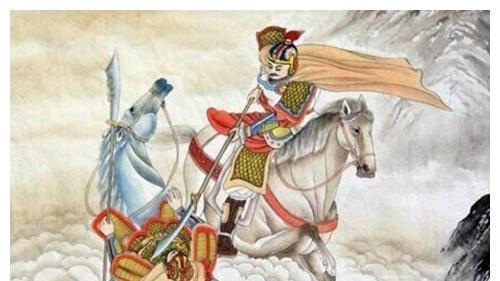The Thirty-Six Plans is a collection of military curiosities of the military masters of past generations, and almost all of the practical experience of the generals in ancient Chinese warfare in scheming and deceiting is included in it. Its title is a household name in China, and today, the "Thirty-Six Plans" have long ceased to be a tactic exclusive to the soldiers, but have been used in all aspects of life. Still, do you know who its author is?

The Book of Southern Qi records: "Jing Ze said: 'The Thirty-six Strategies of the Duke of Tan, walking is the upper plan, and the father and son of Ru only have to go to the ear in an emergency.' The "Tangong" here is tan daoji, the original author of the widely circulated "Thirty-Six Plans", who was more human than Zhang Liang and Wubi Xiangyu, but was eventually executed by the emperor, which made countless people in later generations regret, and his life experience not only contributed to the "Thirty-Six Plans", but also gave birth to two idioms.
Tan Daoji was a man of the Eastern Jin Dynasty and the Southern and Northern Dynasties, the younger brother of the left general Tan Shao, whose parents died at an early age and died a miserable life. In order to resist Former Qin, the famous Eastern Jin general Xie Xuan was ordered to train an elite army, called "Northern Fu Soldiers", tan Daoji joined this army, and became a subordinate of Liu Yu, the founding emperor of the Song Dynasty of the Later Southern Dynasty, following Liu Yu on his eastern expedition to the west, the Northern Expedition, and winning hundreds of battles.
In 420 AD, Liu Yu established himself on his own, with the capital Jiankang and the state name "Song". Tan Daoji, as a meritorious warrior, had a high reputation and knighthood, and was a regular attendant of The Scattered Horse, a general of Zhenbei, and two thousand households. In the process of following Liu Yu in battle, Tan Daoji was always a pioneer, brave and fierce, and paid attention to appeasing the Hu people, winning the hearts of the people, and was an important general who was excellent in both literature and martial arts.
Therefore, Liu Yu is very important to Tan Daoji. However, after Liu Yu's death, although Tan Daoji continued to make many military achievements as always, the danger also followed. Emperor Wen of Song took the throne, enfeoffed Daoji as a general of the Northern Expedition, rewarded him with numerous rewards, and ordered him to take charge of the military situation in many places, and he was ordered by Emperor Wen of Song to go on a crusade against the rebellious Xie Han and won a great victory; he also fought several battles with the Xianbei Dynasty of Northern Wei to keep Liu Song safe.
However, when Emperor Wen of Song saw Tan Daoji, he always had a feeling of "sleeping on the side of the bed and allowing others to sleep soundly", because Tan Daoji was a highly prestigious general in the previous generation, and the people close to him, including his son, held important positions in the army, so keeping Tan Daoji was equivalent to "raising Kou and respecting himself". At the same time, some ministers in the DPRK and China also repeatedly mentioned that once Emperor Wen of Song died, Tan Daoji was the next Xie Han.
In 435, Emperor Wen of Song fell seriously ill and Tan Daoji entered the capital. After Emperor Wen of Song recovered from his illness, Tan Daoji prepared to return to the frontier, who knew that as soon as he boarded the ship, he was urgently summoned back and was sent to prison on charges of conspiracy. The "Biography of Nanshi Tan Daoji" records: "Ji saw the harvest, was angry, his eyes were like a torch, and he drew a drink from Ore. It is the Great Wall of Ru that is bad. '”
Tan Daoji was very angry when he saw that he had ended up like this, staring at people "like a torch", regretting that he did not listen to his wife's kind words. There, Emperor Wen of Song was often at risk of issuing a critical illness notice, and everyone felt that Tan Daoji was entirely likely to become the next Sima Yi, after all, 9 of the 10 articles of the Northern Expedition were from Tan Daoji, and Xie Han and the Xianbei Dynasty of Northern Wei also regarded Tan Daoji as a fierce enemy.
As a result, Tan Daoji was finally given death, and before he died, he was so angry that he took off the turban he was wearing and threw it on the ground and scolded: "To do this is to destroy your (maybe the emperor, maybe to the Liu Song Dynasty) of your own Great Wall!" Tan Daoji's experience gave Chinese history two idioms, "eyes like a torch" and "self-destruction of the Great Wall", and after his death, the Northern Wei Dynasty celebrated together: "Tan Daoji is dead, what else is there to fear in Jiangnan Xiao'er?" ”